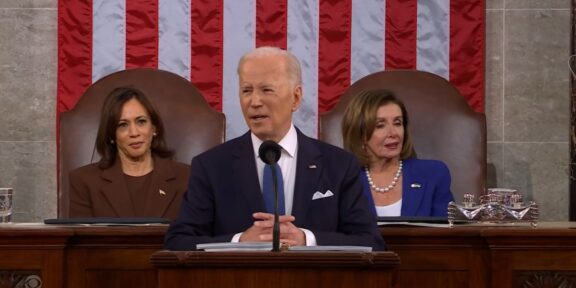The face of poverty, often more associated with despair in developing countries and homelessness on America’s streets, changed with Hurricane Katrina’s devastating destruction in New Orleans.
The aftermath of the fierce storm highlighted just how perilous conditions are for African- Americans and other poor families lacking the necessary means to satisfy their basic needs.
Although the effects of Hurricane Katrina brought the poverty which existed in New Orleans to the forefront, poverty itself has always been present and widespread.
Dr. Daryl Harris, Assistant Professor of African-American Political Thought at Howard University, explains that poverty is inherent within the nature of the political economic system.
”Capitalism is simply working the way it’s supposed to work. It produces certain outcomes and contradictions,” he said. “Class contradictions are evident in the gap between those with obscene wealth and those in obscene poverty. Race contradictions are evident when the white supremacy can ensure that a disproportionate number at the bottom rungs of the ladder are black and brown.”
U.S. Census Bureau statistics show that blacks and Hispanics have the highest poverty rate among ethnic groups. Experts maintain that factors such as education, the banking and lending systems, housing segregation and lack of employment, serve to perpetuate the cycle of poverty in society.
Other elements are also credited with maintaining and perpetuating this cycle among blacks. One such element is the mentality of the people. Dr. Harris insists that blacks need to become aware of who they are and to acknowledge their place in pre-enslavement history. He explains that blacks have been taught to remove themselves from things African and have been encouraged to emulate and adopt the oppressor and his culture.
Dr. Kofi Kissi Dompere, Professor of Economics and Statistics also at Howard, adds another element for promoting change. Dompere purports that blacks must put aside the individualistic American ideology and recognize instead the responsibility they have to uplift and advance their people. He links this belief to the African conceptual principle which states simply “Each for all and all for each.”
Neijma Celestine, a junior majoring in legal communications, agrees with this concept. “Of course we have a responsibility! People should not simply say ‘I’m doing this (getting an education) for me.’ We have to help those of us who aren’t as fortunate. We have to help provide them with some of the opportunities we were given.”
Although the problem of poverty in the black community originates from the systemic and political structures and hence must be solved at these levels, students still believe that individuals can make a difference.
Krystian Ramlogan, a sophomore majoring in film production and psychology, suggests that students become involved in community service activities and advises that social science majors continue carrying out research of minorities in the DC area as this may be used as a basis for future study. Ramlogan notes that a lot can be done to help and stresses that “being aware is the first step in the right direction.”




